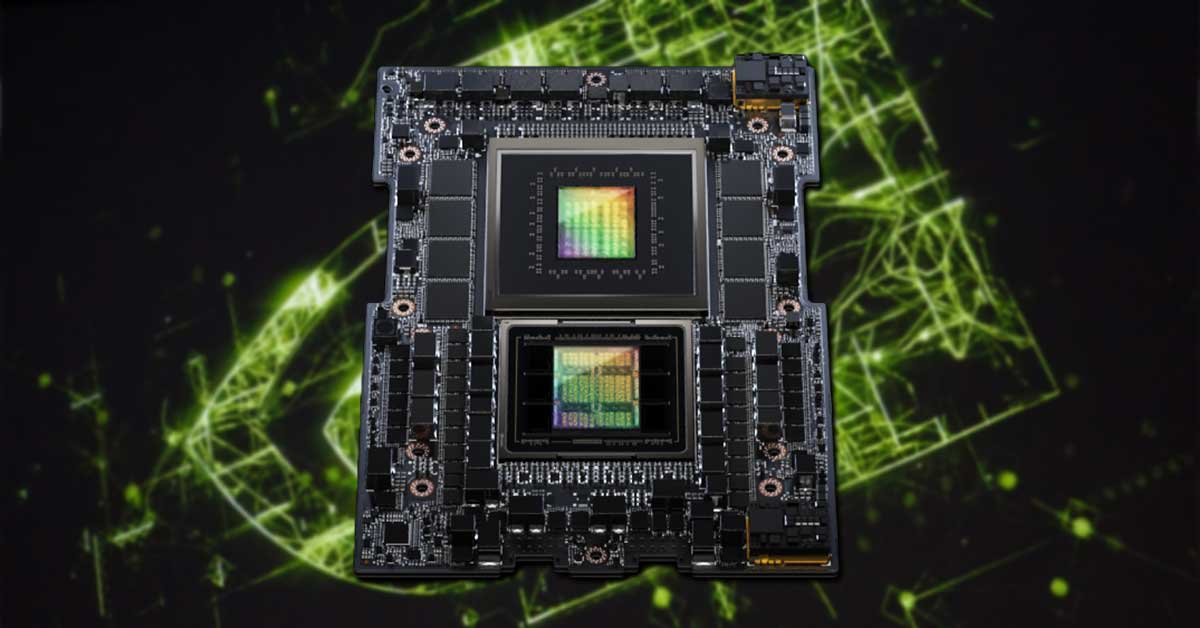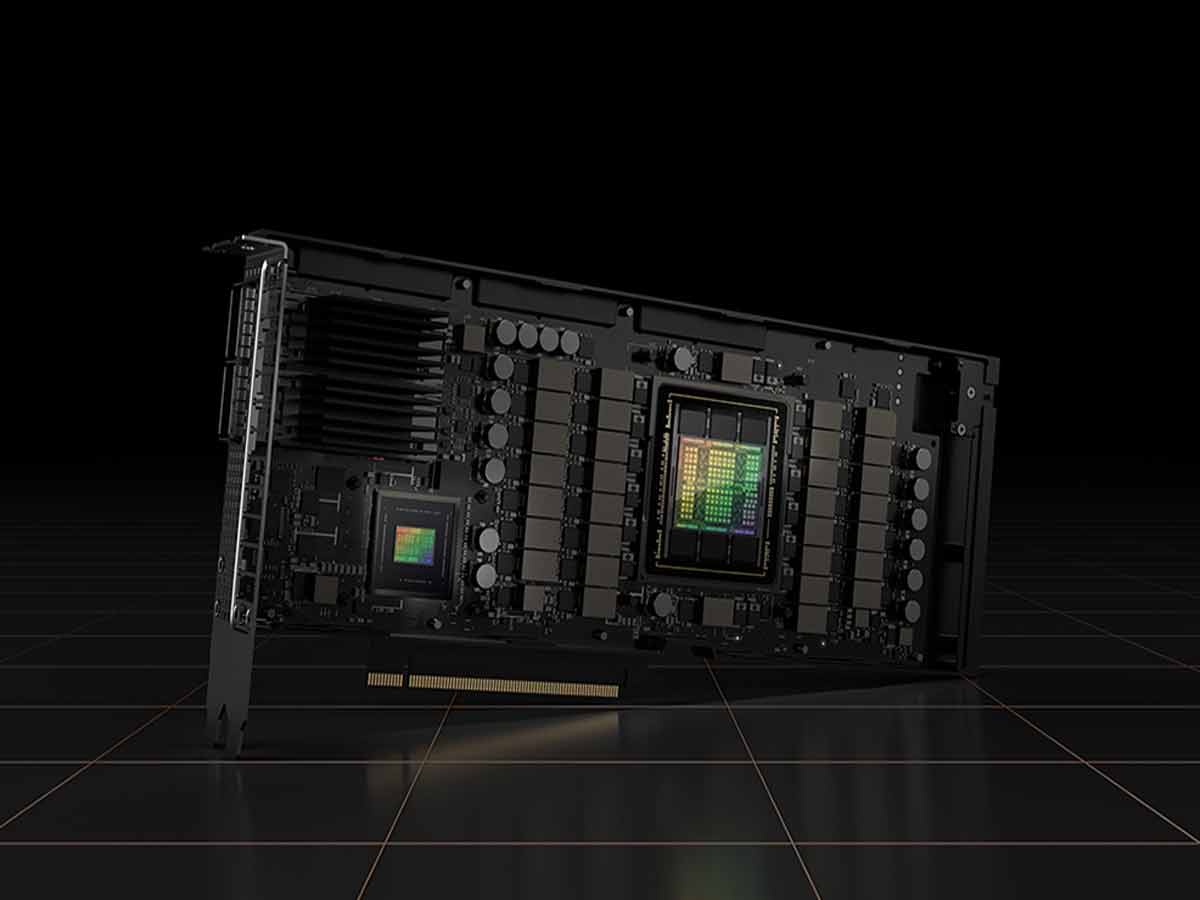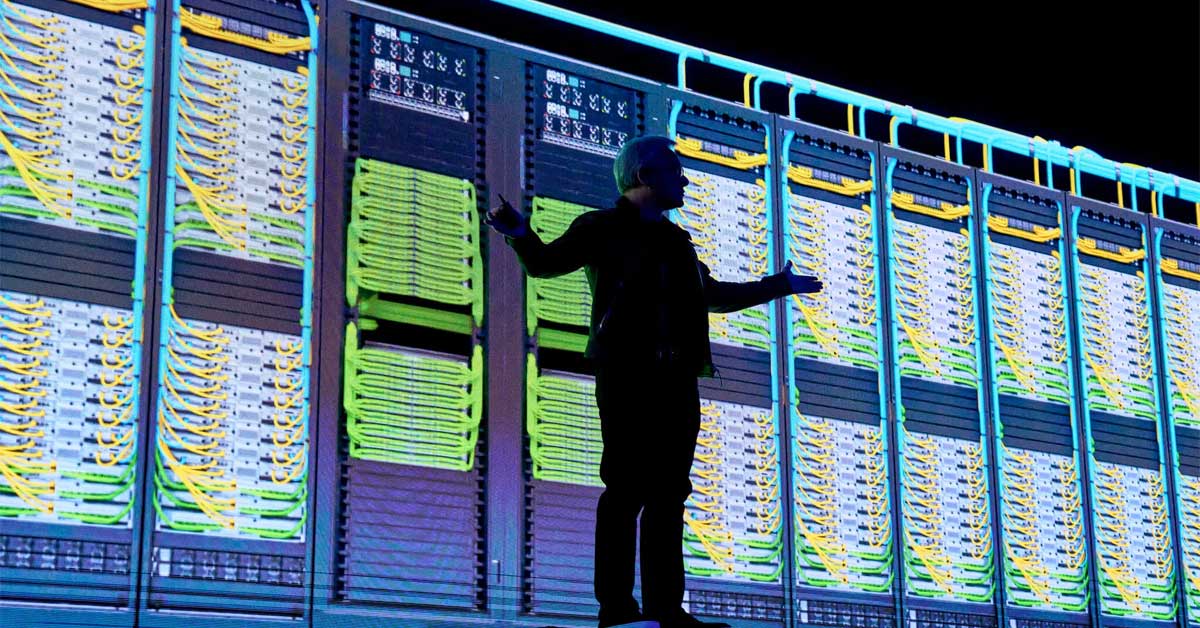France's competition authority made headlines by raiding the local offices of a prominent tech company, Nvidia. This action, shrouded in suspicion of anticompetitive practices, has raised significant concerns and is the first substantial regulatory scrutiny Nvidia has faced since its ascent to becoming the paramount supplier of artificial intelligence chips.
France's competition authority orchestrated a surprise raid on Nvidia's local offices. The focus of their investigation? Allegations of anticompetitive practices, specifically in the graphics cards sector.
This move has sent ripples through the tech world, particularly because Nvidia is renowned as the world's largest chip maker for artificial intelligence and computer graphics.
How and Why Nvidia is so popular?
Nvidia (NVDA), a big player in the tech scene, hails from the United States. They specialize in crafting and selling graphic processors, along with the software that makes them tick.
But what really sets them apart is their knack for developing cutting-edge integrated circuits, the brains behind gaming consoles and personal computers.
They're not just dabbling in graphics; Nvidia is a top-notch producer of high-end graphics processing units (GPUs). Their home base is right in the heart of Silicon Valley, Santa Clara, California.
Now, they're not alone in this tech arena. They've got some heavyweight rivals like Broadcom (AVGO), Taiwan Semiconductor Manufacturing (TSM), Meta Platforms (META), Alphabet (GOOGL), Alphabet (GOOG), Oracle (ORCL), Microsoft (MSFT), Apple (AAPL), Texas Instruments (TXN), and Intel (INTC). But what makes Nvidia stand out is that they've got their fingers in many pies.
Founded back in 1993 by Jensen Huang, who wears multiple hats as president, chief executive officer, and a board member, Nvidia isn't just about making chips. They're the go-to supplier for major cloud giants like Amazon, Alibaba, and Microsoft.
And it doesn't stop there. When it comes to artificial intelligence (AI) and high-performance computing (HPC), Nvidia is the go-to brand for many large corporations and organizations.
In fact, they own 80% of the GPU market, a market valued at a staggering $1 trillion. Yep, that's right, they're the sixth-largest company in the world!
Why? Well, it's all thanks to their high-performance GPU cards, which have made waves in gaming, crypto mining, and AI applications.
But here's the kicker - if you're into ray tracing, streaming, video production, or professional applications, Nvidia's your best bet.
Their ray tracing prowess leaves the competition in the dust, and they're the kings of compatibility regarding 3D modeling software.
These raids are meticulously planned and executed with precision. Officials typically arrive early in the morning, and once inside, they embark on hours-long exercises.

Their objectives include searching the company's premises, confiscating both physical and digital materials, and conducting interviews with employees. Importantly, such operations require prior approval from a judge, a crucial legal step.
The Cloud-Computing Connection - Demand for Nvidia's Chips
Interestingly, the French authority's actions this week followed a broader inquiry into the cloud-computing sector. Their concerns revolved around the potential for cloud-computing companies to exploit their access to computing power to exclude smaller competitors.

Though not explicitly stated, Nvidia was at the center of this investigation, as French business magazine Challenges had earlier reported. Nvidia declined to comment on the matter to WSJ.
It's important to note that in the realm of cloud computing, major players like Amazon.com, Microsoft, and Alphabet's Google operate colossal data centers. These tech giants rent out their vast computing power to other companies and governments.
Notably, cloud companies are major consumers of Nvidia's chips, originally designed for computer graphics but which have now evolved into the computational workhorses behind the AI boom.

The rise of generative AI systems like OpenAI's ChatGPT has led to an insatiable demand for Nvidia's chips. This surge in demand has resulted in a significant shortage, raising questions about the company's ability to meet market needs. Despite their best efforts, the shortage persists, and remarks by prominent tech executives, such as Oracle Corp.'s Larry Ellison, have amplified the issue.
The Regulatory Landscape & Market React - Nvidia
Nvidia has been on fire lately. Their sales have shot up like a rocket, pushing the company's market value way past a jaw-dropping $1 trillion in June. That's a massive achievement in the tech universe, let me tell you.
Nvidia's $13.51B Revenue Surge?
In the second quarter, NVIDIA racked up $13.51 billion in revenue. That's more than double what they hauled last year, which was $6.7 billion.
Under the GAAP system, their net income soared to an eye-popping $6.18 billion. It's nine times what they pocketed in the same quarter last year, which was a measly $656 million.
NVIDIA's gaming division pulled in a cool $2.49 billion in Q2 revenue, a 22 percent bump from the previous year.
During this time, they released the budget-friendly GeForce RTX 4060 GPU, revealed the Avatar Cloud Engine (ACE), tailor-made for gaming fanatics, and threw a party for adding 35 DLSS games to their roster, including the much-hyped Diablo IV.

Now, let's talk about the AI chips game. Nvidia is dominating the scene, and it's not looking like they're going to let up. Citi analysts are saying that Nvidia is on track to keep a stranglehold on a market share of more than 90%. How are they doing it? Well, they keep cranking out newer and more kick-butt versions of their hardware.
The French competition-authority report, published in June, didn't explicitly name Nvidia but pointed to the increasing use of artificial intelligence as a driver of growth in the demand for cloud services.
Interestingly, two French companies have recently announced deals to expand their offerings of Nvidia's most powerful AI chips, known as H100s. French telecommunications operator Iliad Group is installing these chips in the heart of a Paris-area data center, while OVHcloud, a cloud services company, plans to add H100s to the lineup of Nvidia processors offered to customers for AI applications.













